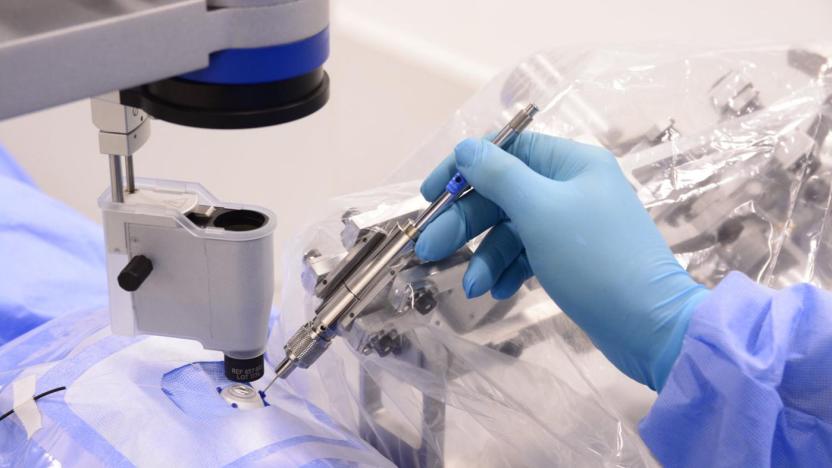kuleuven
Latest

Thieves could have cloned Tesla's Model S key fob
Tesla may be more security-conscious than many car manufacturers, but it's still vulnerable to the occasional glaring exploit. KU Leuven researchers have detailed a technique that let them bypass the encryption on Tesla's key fob for the Model S, making it trivial to clone the key, get inside and start the vehicle. They discovered that the fobs used an easy-to-crack 40-bit cipher to safeguard the codes. Once they got two codes from a specific fob, they only had to try using encryption keys until they discovered the one that unlocked the EV. From there, the researchers created a data table for code pairs that would let them find the encryption key for cloning any Model S fob.

Surgical robot makes highly precise eye injection possible
For the first time ever, a team of eye surgeons were able to inject a thrombolytic drug directly into a patient's retinal vein to dissolve a blood clot. It was a success despite the fact that the vein is as thin as human hair thanks to a surgical robot developed by researchers from KU Leuven, a university in Belgium. The condition they treated is called retinal vein occlusion, and it leads to reduced eyesight and blindness. At the moment, doctors can only suppress its effects with monthly eye injections, because the retinal vein itself is only around 0.1 millimeter wide. It's just much too thin for manual injections when the drug has to be administered for 10 minutes straight.

Spongy electronic 'nose' can sniff out nerve gas and pesticides
When you're trying to detect extremely dangerous chemicals, you don't want to mess around -- even a tiny amount can spell big trouble. It's a good thing, then, that Belgian researchers have developed what could be the most sensitive gas sensor to date. Their electronic 'nose' uses spongy metal-organic frameworks (below) that can absorb and flag extremely tiny amounts of the phosphonates you find in harmful gases like sarin (aka a form of nerve gas) or pesticides. It's so sensitive that, in some cases, it can find just a few parts per trillion -- even the cleverest evildoer would likely have trouble hiding a chemical weapon.

